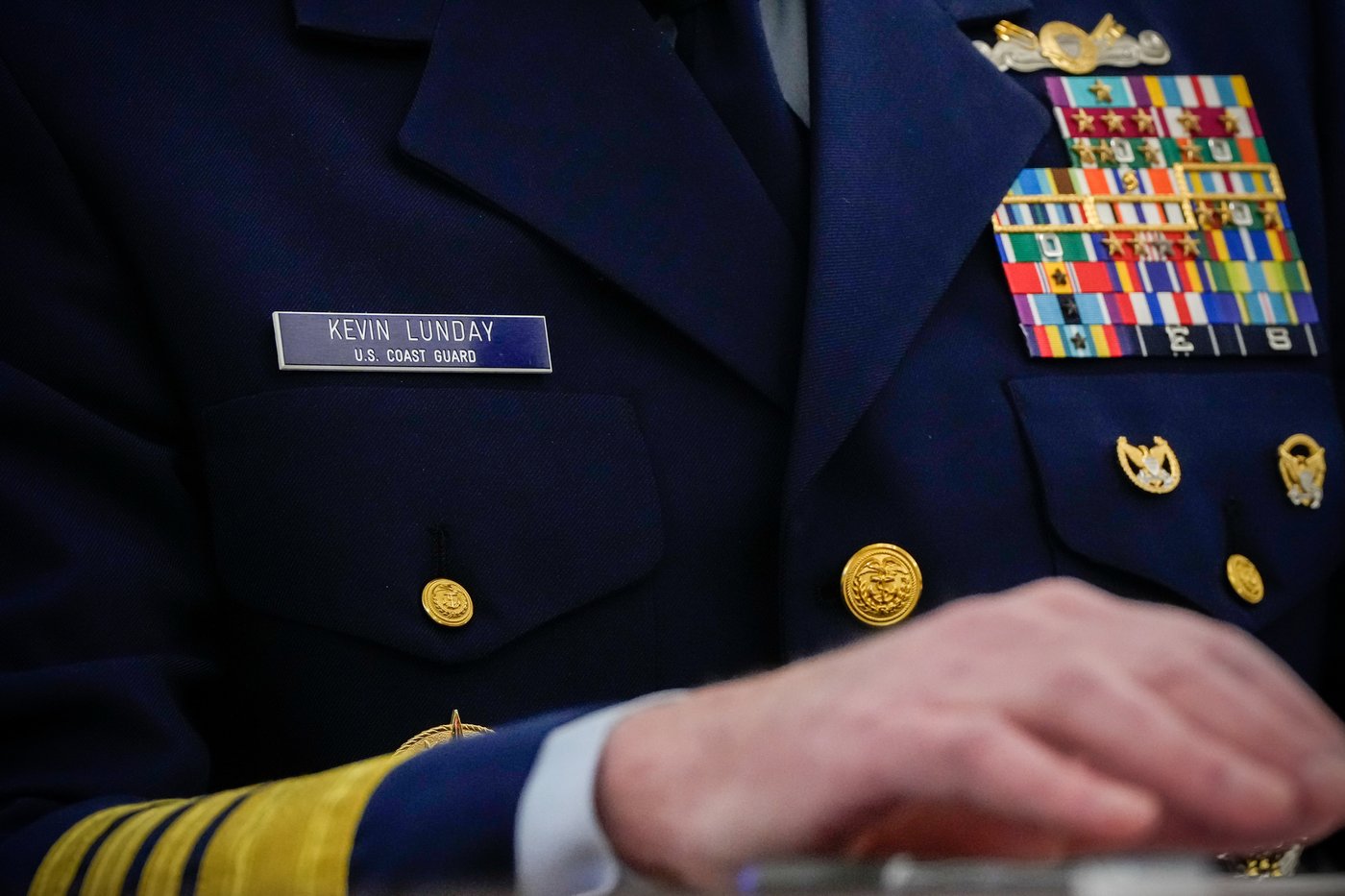Elevate your local knowledge
Sign up for the iNFOnews newsletter today!
[byline]

WASHINGTON (AP) — The U.S. Coast Guard is poised to change some of its language and policies surrounding the display of hate symbols like swastikas and nooses as well as how personnel report hate incidents.
The service stressed, however, that the symbols will remain prohibited. The updated policy is seen by the Coast Guard as a way to strengthen its ability to report, investigate and prosecute violators.
“Any display, use or promotion of such symbols, as always, will be thoroughly investigated and severely punished,” Admiral Kevin Lunday, acting commandant of the Coast Guard, said in a statement.
A Coast Guard message in 2020 from then-Commandant Karl Schultz said symbols like swastikas and nooses were “widely identified with oppression or hatred” and called their display “a potential hate incident.” The Coast Guard policy dated this month calls those same symbols “potentially divisive,” adversely affecting morale, discipline, unit cohesion and mission effectiveness.
The new policy maintains a yearslong prohibition on publicly displaying the Confederate flag outside of a handful of situations, such as educational or historical settings. However, it does not outright ban the symbols, saying the policy does not apply to private spaces outside of public view, such as family housing.
The new Coast Guard policy, which is set to take effect on Dec. 15 and was first reported by The Washington Post, is facing pushback.
Democratic Sen. Jacky Rosen of Nevada said that “this updated policy rolls back important protections against bigotry and could allow for horrifically hateful symbols like swastikas and nooses to be inexplicably permitted to be displayed.”
“At a time when antisemitism is rising in the United States and around the world, relaxing policies aimed at fighting hate crimes not only sends the wrong message to the men and women of our Coast Guard, but it puts their safety at risk,” she added.
Lunday said the policy does not roll back any prohibitions, calling it “categorically false” to claim otherwise.
“These symbols have been and remain prohibited in the Coast Guard per policy,” Lunday said in a statement, adding that “any display, use or promotion of such symbols, as always, will be thoroughly investigated and severely punished.”
Lunday’s predecessor, Admiral Linda Fagan, was fired on President Donald Trump’s first day in office. Trump officials later said she fired in part for putting an “excessive focus” on diversity and inclusion efforts that diverted “resources and attention from operational imperatives.”
The new policy explicitly says that “the terminology ‘hate incident’ is no longer present in policy” and conduct that would have previously been handled as a potential hate incident will now be treated as “a report of harassment in cases with an identified aggrieved individual.”
Commanders, in consultation with lawyers, may order or direct the removal of “potentially divisive” symbols or flags if they are found to be affecting the unit’s morale or discipline, according to the policy.
The Coast Guard is under the Department of Homeland Security, but it is still considered a part of America’s armed forces and the new policy was updated in part to be consistent with similar Pentagon directives, according to a Coast Guard message announcing the changes.
It also has historically modeled many of its human resources policies on other military services.
The policy change comes less than two months after Defense Secretary Pete Hegseth ordered a review of all the hazing, bullying and harassment definitions across the military, arguing that the policies were “overly broad” and they were “jeopardizing combat readiness, mission accomplishment, and trust in the organization.”
The Pentagon could not offer any details about what the review was specifically looking at, if it could lead to similar changes as seen in the Coast Guard policy or when the review would be complete.
Menachem Rosensaft, a law professor at Cornell University and a Jewish community leader, said in a statement that “the swastika is the ultimate symbol of virulent hate and bigotry, and even a consideration by the Coast Guard to no longer classify it as such would be equivalent to dismissing the Ku Klux Klan’s burning crosses and hoods as merely ‘potentially divisive.’”
Senate Democratic leader Chuck Schumer called the move “disgusting, and it’s more encouragement from the Republicans of extremism.”
___
Haigh reported from Norwich, Conn.



Want to share your thoughts, add context, or connect with others in your community?
You must be logged in to post a comment.